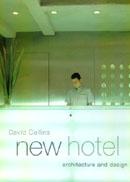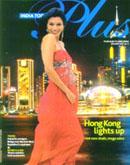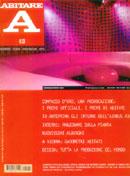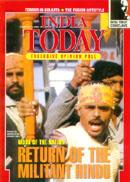|
|
 |
| |
| Design
Today : February – March, 2002 |
My
aim while restoring the fort palace was not merely to bring it
back to life but to infuse in it an energy that would carry it
through to the next millennium.
|
| |
| Business
Traveller : February, 2002 |
Like
any traditional Indian dwelling, Devi Garh revolves around courtyards;
five to be precise. Each courtyard blends classical and modern
designs to achieve a fusion, which is peaceful yet intriguing.
The ‘Kamal Court’ is an interesting interpretation of the lotus
motif as a black marble water-maze.
|
| |
| Outlook Traveller
: February, 2002 |
The
braziers burn bright, sending out small fish – flames of gold
against a velvet sky. The jal tarang tinkles and the meat dissolves
under my questing fork. A waiter leans solicitously over me and
asks if I want another drink ? More rose petals chucked over my
table ? Another shawl ? Devi Garh is like that. An hour’s drive
from Udaipur through the Aravallis, this fort brings out the romantic
in you.
|
 |
The project was conceived as a meeting place
of the traditional past and modern India in which the interior design
and the decorative details are especially noteworthy. The simple
geometric lines of the new elements are striking, and engage in
dialogue with the stone carvings, textures, and complex shapes of
the existing structure. The contemporary design and this spectacular
legacy are complemented with hi-tech services that meet the needs
of today's guests. |
 |
At Devi
Garh Palace, India, guests are pampered in princely style, in keeping
with the building's history. Wholly white rooms ease minds into
meditative peace, while bodies are relaxed by a yoga teacher and
Ayurvedic doctor. |
 |
| Society
Interiors : January, 2002 |
Aesthetically,
Devi Garh makes full use of the local idiom with a deliberately
minimalistic design (in contrast with the cliched ethnic one of
most palace-turned-heritage-resorts that dot Rajasthan). White is
the predominant shade, albeit underscored by a very frugal but highly
effective use of colour. Other public areas such as the Darbar Hall,
the conference room and billiards lounge use gold, silver and copper
respectively as their leitmotifs. The harnessing of traditional
craft to create contemporary designs have led to uniquely crafted
pieces of furniture for these areas. |

|
| India
Today Plus : January, 2002
|
Inside the fortress,
the atmosphere is that of an oasis of peace and tranquillity, with
views of the nearby hills adding to the effect. There are spa treatment
rooms for men and women, with therapists of both sexes, supervised
by a licenced Ayurvedic physician from Kerala.
|
 |
A representative monument in north-west India
has been converted into a hotel that gives the Rajput style a wholly
contemporary slant. The size of the building, and the complexity
of its plan and elevation, made a detailed architectural survey
virtually impossible during the design stage. The renovation and
remodelling work took more than a decade and involved over 700 people.
All the materials used come from the Udaipur region and unusually,
traditional methods have been used to create lines and unadorned
surfaces. |
 |
| Destinasian
: January / March, 2002 |
It's a
grand and romantic setting even by Rajasthani standards. But unlike
so many of the old Rajput palaces that have opened their gates to
paying guests since India's independence, the Devi Garh has eschewed
period furnishings in favor of a design philosophy that embraces
clean, contemporary lines and a modern twist on traditional motifs.
The result is an irresistible fusion of old-world opulence and sleek
luxury, highlighted by such lavish touches as marble bathtubs. Add
to that a sublime Ayurvedic spa and a staff-to-guest ratio of four
to one, and you have the ultimate base for exploring the temples,
gardens, and lakeside citadels that have earned Udaipur its reputation
as one of India's most beautiful cities-providing, that is, you
can tear yourself away from the Devi Garh's voluptuary delights. |
 |
Traditional elegance was the order of the day
at a spectacular wedding in Rajasthan. The flowers were symbolic -
white jasmine for purity, orange marigolds for the mendhi ceremony,
and red roses to reflect the traditional colour of an Indian wedding
dress. Guests were treated to a bit of Indian culture by way of live
musicians and dancers from Rajasthan, before East met West in the
evening, as a DJ spun the decks in a marble-floored nightclub.
|
 |
| India
Today : February 4, 2002 |
Along with
architect Navin Gupta and interior designer Rajiv Saini, it took the
Poddars 10 years to create the distinctive fusion ambience of Devi
Garh. Sleek modern furniture with details in Indian colours and motifs
fill the suites. So you have pillow cases in Banarasi silk with gold
embroidery and windows that are shaped like jharokas. |
|
|







